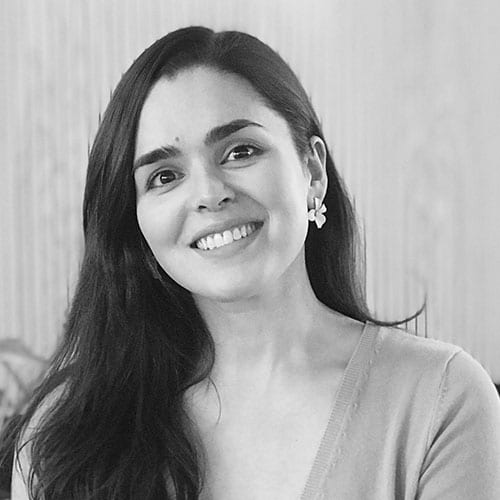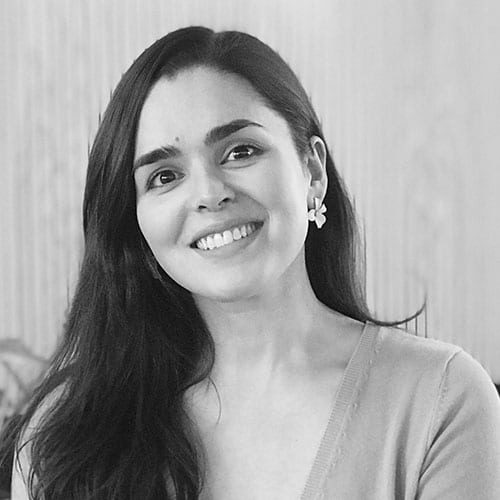The impact of AI on the way we work continues to be a subject of much debate.
Gate One Partners Caro Ruttledge and Umbar Shakir caught up recently to discuss the future of work in an era of AI-powered change, including:
- The impact of AI on the workforce, emphasising the need to regain a sense of humanity in work, which has been lost due to tedious tasks and a burnout culture exacerbated by COVID-19.
- The difference between “craft” (creative and innovative work) and “graft” (routine, administrative tasks), suggesting that AI can take over the latter to free up human creativity.
- The importance of continuous learning and adaptability in the workforce to keep up with rapid technological changes, rather than relying on outdated training methods.
- How to use AI to augment human capabilities rather than replace them, fostering a balanced approach where technology enhances human connection and creativity.
Watch their full conversation or read the transcript below.

Caro: Super excited to be here today. I think we’re going to cover two topics today, pretty small things to talk about… GenAI and humanity

Umbar: Not preoccupying any of our time at all. We’ve been talking actually lots about this topic with our clients over the last months and weeks. And, yeah, I really want to get into this with you because we’ve got some very strong opinions on this.

Caro: There’s a lot to talk about, let’s face it, I think we’re going to start this talk by saying we’ve lost what it means to be human in the workforce.
So, both you and I talk to people across all sorts of organisations across the globe, different functions, different grades. And no one enjoyed their job last year.

Umbar: No, there’s a lot of tedium and we’ve normalised it. So whether that is tools and templates, admin, governance for governance sake, lots of clock watching, hierarchy, and with the onset of COVID, telephone calls, Zoom calls, video calls, back to back to back to back to back to back meetings. You know, this perpetual, on the brink of burnout culture, we’re hearing a lot about the mental health of our workforces.

Caro: And I think we’ve taken some practises from the Victorian era, we’ve put them in the office, we put them in our laptops and we’ve put them in our living rooms.

Umbar: And that production line works around, you know, do this task, then this task, it’s very process oriented, it doesn’t tap into what fundamentally makes us human. So how do we start to, with the power of AI? And a lot of people are talking about low hanging, fruit like productivity gains and efficiencies, but actually, we’ve got a way bigger opportunity with this technology to hack and unshackle ourselves from how we have designed work previously.

Caro: Completely. And this brings us to, I think, one of your favourite phrases this year.

Umbar: Craft versus graft. And if we think about how we do our work and the value of that work, the value of our work comes from crafting new ideas, new solutions to problems or new products and services. That invention part, that creativity part of what makes us human, is what excites most people as well. And so how can we start to do that more, free up more of our capacity to do that kind of work? And actually the graft of what we do, whether that’s analytics and research and collation and data gathering, how do we outsource some of that stuff to the machines? Because fundamentally, where is the value of the humans doing that? Now, we need that data to learn and be able to give us judgement, but if we could do that faster, we could learn faster. So, you know, that hacking is where and that reimagining of how we do work is fundamentally what’s exciting me.

Caro: Totally. And I don’t think any of us got into our jobs to do milestone planning and lots and lots of impact analysis etcetera.

Umbar: Whether that’s change readiness assessments or PPM templates, or lots of research for advertising campaigns, you know, those things, they’re necessary as inputs, but fundamentally, the creativity and the creation is where actually the fun happens. And a lot of people got into those jobs, whether it’s for marketing and advertising or in PPM, to make human connections, to make a difference to other people, whether that’s customer experiences or employee experiences. How do we make a difference in the world? And I think, how can we tap back into some of that humanity is really key for me.

Caro: I think some 90s’ films references might make us tap back into that humanity.

Umbar: Well, the first thing that most people think about when they talk to me about AI is they ask me about singularity. When is singularity going to happen? And I kind of go, well, it’s not Terminator territory, it’s still, you know, quite.. it’s just maths and fast computing. So, you know, when and fundamentally, it’s some choices that we make as businesses about how we deploy this technology. And we don’t believe, you and I, I know, don’t believe that this technology is about replacing humans, it’s about augmenting us.

Caro: And this is where we all need to get a little bit more Jeff Goldblum.

Umbar: How do we, in Jurassic Park, when he talked about we’re so preoccupied with whether we could.

Caro: Yes.

Umbar: The scientists didn’t stop to think whether they should. And we have that feeling about not every business problem needs an AI shaped answer to it, because then, you know, if you’ve got a hammer, everything looks like a nail. And let’s be a bit more discerning about how we apply this technology.

Caro: And equally, how do we get up a level from the tech to actually how we’re doing our work, how we’re organising our people, how we’re going to market, how we’re looking after our customer needs, and how we’re bringing moments of joy into the workplace for our people. We can use GenAI to take away the graft and improve all of those areas.

Umbar: And I think that employee experience piece is really quite key, because when we think about stepping back a little bit, like the wider context of hybrid working is not going away anytime soon, with or without, like, you know, if you’re behind a bit on AI, with or without you, this is happening. So AI augmented workforces, what starts to become the cultural fabric that really brings connection for these AI augmented, virtually connected employees of the future. And we, our clients are starting to ask us what skills, what capabilities, what jobs? And while we don’t have answers to all of those things about what jobs are going to be out there, we do have some ideas of what’s the type of skills and the type of culture that you might want to start working on now and not wait to be behind.

Caro: You do not need to wait. And I think every organisation right now can start looking at digital dexterity. And how are we just making people feel a lot more comfortable with some of the tech changes, giving them space so they’re not in their back-to-back-to-back-to-back-to-backs, and then trying to learn new tech?

Umbar: Well, that comes to another 90s’ film reference, A Field of Dreams. And I do talk about tech adoption quite a lot in terms of it isn’t a field of dreams. If you build it, they might not come.

Caro: Probably won’t come, well, the early adopters might come.

Umbar: The early adopters. But the gap between early adopters now on GenAI and your early majority is quite big because the technology’s moving so fast.
So, you know, there’s a lot more effort that probably goes into. And I think we’ve talked about training for technology now, can’t be this once and done exercise where you get everybody in a classroom. It has to be more like employee engagement, like comms and engagement.

Caro: All the time.

Umbar: Continuous learning cultures, continuous innovation cultures. How do you start to foster? And when we talk about digital dexterity, there’s an enterprise agility that goes along with that. And we’re not talking about sprints and scrum.

Caro: And manifestos.

Umbar: Yeah, you know, agile manifestos, we’re talking about the agility to be able to adopt and pivot, whether that’s your business strategy, whether that’s your processes, whether that’s your technology, and whether that’s your culture as well. Because I think adaptive culture is going to become even more important going forward.

Caro: Massive. And I think this is how leaders help their workforces be less fatigued as well, is when we accept the pace of change, but make space for it, redesign work for it and support people with the right training to jump into the future.

Umbar: And I think when we look at sort of, you know, that reassurance piece for people, because there is a lot of job insecurity. Am I going to have to unionise? You know, and there are predictions, you know, Gartner makes some predictions around knowledge workers are going to start to unionise, you know, by 1000% in the next few years. Are your HR functions ready for that level of unionisation, etcetera? But also, how do we, how do we start to reassure people that actually, if you think about, there’s a stat that says 40 years ago, 60% of the jobs we do today didn’t even exist. So as humans, we evolve all the time. I’m not sure if I’m allowed to even talk about the production crew here today, but we were talking to the production crew today about our favourite job ever.

Caro: About our favourite.

Umbar: Well, so I do fashion photography on the side and that move from film to digital and now digital to AI, and we’ve adapted and adopted new technologies and new tool sets for years. But I think what we’re starting to observe, and I’m old enough and ugly enough to have seen a few waves of technology come over time, whether that’s the rise of the Internet, mobile phones, email, cloud computing, digital e-commerce, etcetera, the promises that were sometimes made, and also the Doomsday predictions that were made around some of those industries, didn’t always manifest around.

Caro: Well, I’m pretty sure email was meant to take a day or two out of, like, a week.

Umbar: Productivity hacking! And so, and also there were, you know, some big firms ten years ago said that half of all jobs were going to be obsolete by this year, and that hasn’t happened either. And that was with old AI, not with generative AI. But what we are seeing is that that 40 year cycle of, you know, 60% of our jobs are different. That cycle is going to get shorter and shorter. So my daughter’s generation, she’s 16, she’s probably going to have more jobs than I’ve had, and I’ve had two or three.

Caro: She’ll have them every two or three years.

Umbar: She might be doing it on a shorter cycle. And so that’s. That’s what I mean about agility in your people, to be able to handle that kind of level of reskilling or pivoting to different types of roles, etcetera. But I think that gives us a real opportunity for variety in the workplace. And you were talking about boredom earlier.

Caro: Yep. Yep, let’s get rid of the boredom. But also, we said we’d talk about humanity. We’re not solving the world’s biggest problems right now. We’re sitting in spreadsheets and emails and PowerPoints and we’re thinking that the work is what’s on our laptop and the work’s out there for the planet and for our people. And let’s just take a bit of the graft away so we can focus on that, I think.

Umbar: And I’ve been talking to our sustainability team about that and how we can utilise AI to drive CSRD, regulatory compliance, etcetera. But I haven’t talked to you enough and we need to, Caro, about how AI can actually drive DE&I in the workplace, because we feel very strongly as women in consulting industry and the tech industry that DE&I, we talk a lot about it and we report a lot about it, but we’re not actually seeing the needle or the dial shift.

Caro: Not fast enough.

Umbar: Not fast enough. And so how can we start to maybe utilise data as an asset to drive better performance when it comes to DE&I initiatives? And that’s quite exciting.

Caro: Yeah, it’s a little bit to work with, I think.

Umbar: I know next week’s problem, but I think coming back to that whole piece around craft and graft and workforce of the future, what would you be saying to some change managers now about, you know, what can you start to activate in your organisation right now when it comes to looking after people and doing this?

Caro: Great question, and I think at the end of the day, it can be scary. And some people want to hide from this sort of whirlwind of media and tech updates and what was yesterday is already too far behind, etcetera, etcetera. Just start to play, start to experiment, you know, work out what apps or platforms you want to have a go on, start to chat, learn the dialogue. It’s a language, get a bit more comfortable, but then never forget your role as an advocate and change maker within your organisation. Be more Jeff Goldblum. I’m definitely going to use that once more in this video because I love it. Be more Jeff Goldblum and ask, what should we be doing right now? Not just what could we be doing?

Umbar: And I think we also talk about, while our clients, the first thing they ask us is around efficiency and productivity gains. Actually, we’re provoking them to think more about effectiveness and being better with AI, but also being better than AI. The AI doesn’t have the moral compass and the values that we as humans have and that connection that we fundamentally crave and need as human beings. And so how do we, you know, and this is a proportionality that I talk to some of my clients about, especially around, and it’s not just around AI, but it’s any tech or automation, what should be purely automated and in the digital sphere, what should be a mix of hybrid, digital and human, and that’s normally contact centres. You know, you want some digital self serve, but you want some human, human touch to it as well, and what should be fully human and tap into our humanity and creativity and flow and connection and collaboration and, you know, taking, taking our problem solving abilities to another level, that’s something that it’s worth thinking about as well, in terms of not everything has to be fully automated and it’s working out in your organisation. How does AI fundamentally help you to be more human where it matters?

Caro: Yep, 100%. Let’s get the tech adoption practises out there, let’s improve digital dexterity, but let’s also create more moments of joy and tap back into our creativity, in the workplace.

Umbar: Love it! Thank you. Good chat. Good chat. Good job.




At Gate One, we are passionate about helping businesses harness new technologies to deliver better outcomes for people. Sign up to our AI content to stay on top of the latest AI thinking and help ensure your business is crafting meaningful outcomes from this new wave of technology.


